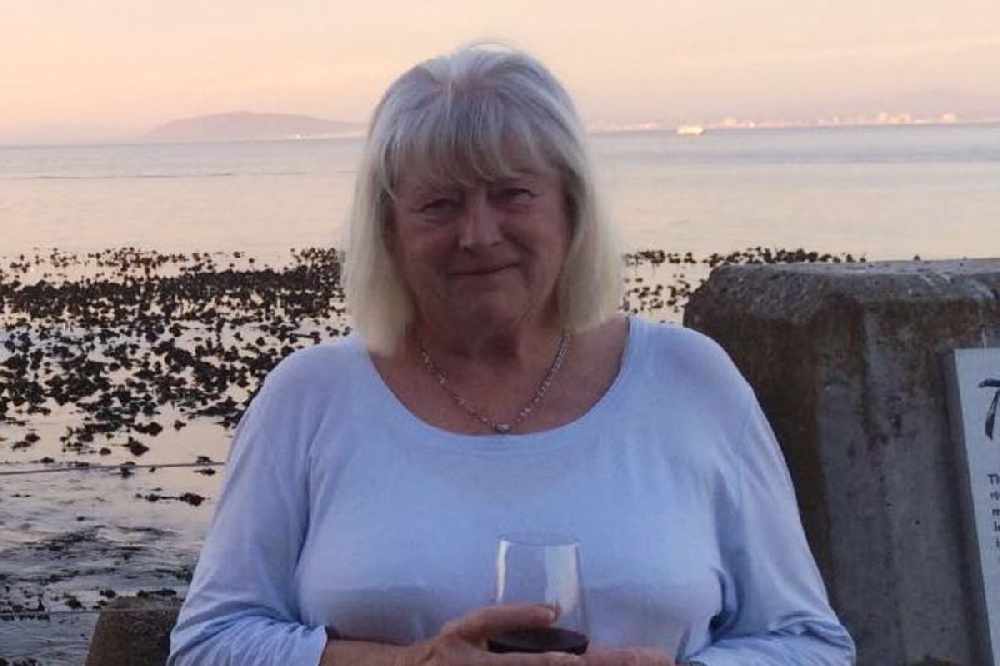
A review prompted by the killing of Pamela Nisbet in 2019 by her son has called for a new Domestic Abuse Law for Jersey to be prioritised.
A Domestic Homicide Review into the 68 year old's tragic death has called on police and other agencies detaining a patient on Mental Health grounds to know how to challenge decision if they think it 'urgent and necessary'.
The review - led by Professor Jane Monckton Smith - has made several recommendations and 'lessons to learn' after Mrs Nisbet was fatally stabbed in the neck by her son Andrew at her home in St Peter.
It followed a dispute over living arrangements. Andrew has been refused permission to develop the one-bedroom annex of his monther's home on a permanent basis.
He had Autism Spectrum Disorder and displayed what has been described as 'abusive, manipulative, controlling, and threatening behaviour' in an attempt to let him take control of the property. The situation became so difficult that proceedings were started to evict him.
Three attempts were then made to detain her son Andrew under the Mental Health Law. The first two proved unsuccessful because of barriers created by Andrew. On the third try, the authorising officer refused to take this course of action because she believed the situation could be managed without detention.
The GP, police, and the family expressed 'extreme frustration' that detention was refused.
Five days later, Pamela was fatally stabbed.
The independent chair of the Jersey Safeguarding Partnership Board, Sarah Elliott, says all professionals need to make sure they challenge if they're concerned.
"The authorised officer has to work to a principle of the least restrictive option and trying to maintain that person's independence.
"I think we can now see that the particular focus that the authorised officer had was on the risk of self-harm and now we realise that actually there were the wider risks because of the controlling behaviour."
Andrew Charles Nisbet admitted manslaughter on the grounds of diminished responsibility and was sentenced to an indefinite secure hospital order.
The review concluded that warning signs of the threat posed to Pamela were missed because the focus has been on the potential risk of Andrew harming himself.
"(He) clearly was presenting with some mental health difficulties. A number of mental health professionals were involved supporting him with those needs, but at the same time there was also domestic abuse in the background with very controlling behaviour and very manipulative behaviour.

"Quite understandably, the family wanted to try and avoid their son getting into the criminal justice system.
"We now feel the professionals probably couldn't see the whole picture and how the risks were escalating."
The review sets out several areas in which Andrew displayed coercive control and patterns of domestic abuse. It found that Pamela was subjected to relentless pressure, threats, and manipulation - but the focus was mainly on her son because of his mental health.
One recommendation is to make sure the impact of behaviour and risk on wider family members is considered.
"It's less often that you might see mental health difficulties and domestic abuse at the same time but that was very much the focus in this case.
"It's really ensuring the professionals understand what we refer to as a dual-lens of mental health difficulties and domestic abuse."
Specific recommendations were made to Jersey Police following this case, which included making better use of 'hearsay evidence', such as body worn camera footage, to support domestic abuse victims.
61% of domestic abuse victims do not support a criminal complaint.
Another recommendation is to make training and awareness around patterns of coercive control 'a priority'.
Detective Superintendent Alison Fossey says officers have to undergo mandatory training to improve understanding for them and others across Jersey.
"Many victims, as in this case with Pamela, perhaps don't recognise that they're a victim of domestic abuse - particularly when we're talking about coercive controlling behaviour and also when we're talking about different forms of relationships that aren't necessarily intimate partners."
It's hoped others across government will also make it mandatory to undertake this training.
A campaign is due to take place this coming autumn to raise awareness understanding of domestic abuse and coercive control, which will become an offence under the new Domestic Abuse law for Jersey.
Home Affairs Minister Deputy Gregory Guida says he wants to bring forward this new law early next year.
It could include a register, like is the case with victims of sexual abuse.


 Former CI Co-op boss awarded more than £3m
Former CI Co-op boss awarded more than £3m
 Jersey-grown food tested for PFAS levels
Jersey-grown food tested for PFAS levels
 Guernsey Airport releases former Blue Islands aircraft
Guernsey Airport releases former Blue Islands aircraft
 KLM revives direct flights from Jersey to Amsterdam
KLM revives direct flights from Jersey to Amsterdam
 Record retirement year for Rhona's
Record retirement year for Rhona's
 Cheaper parcel prices for 2026
Cheaper parcel prices for 2026
 Draft Food Law lodged to protect people with allergies
Draft Food Law lodged to protect people with allergies
 WATCH: Last Blue Islands plane leaves Jersey
WATCH: Last Blue Islands plane leaves Jersey

